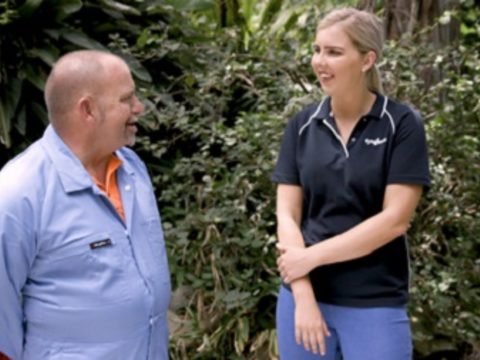Mosquito vectors
Mosquitos can be more than an annoyance
They can carry serious diseases such as Dengue, Zika, Ross River Fever, Brahma Virus and Murray Valley Encephalitis.
There are over 80 species of mosquito in Australia[ref 1]. Each of these species of Mosquitos can be responsible for spreading the above different virus or disease. It is only the female Mosquito that bites humans and pets for a blood meal, so she can lay her eggs, so the Mosquito species survives.
Globally, the primary vector of the Zika virus is, Aedes aegypti. This mosquito has been found in the Australia for many of years but recently only in Queensland. Often referred to as container-breeding mosquito, Aedes aegypti has the following traits:
- Go through complete metamorphosis: egg, larva, pupa and adult
- Can complete their life cycle in as little as 7 days (depending on temperature and humidity)
- Have a flight range of several hundred metres
- Are daytime biters
- Rest in shady areas, and in vegetation less than 3 metres tall
Mosquito treatment best practices to increase revenue
Mosquito treatments can be a great addition to a pest controller’s service offer due to the excellent revenue vs cost and the potential upsell to the homeowner while you are already on site doing other internal/external treatments. It is important to be properly trained and have the right equipment to deliver quality service to your customers. One important factor that most pest controllers do not understand with mosquito treatment is that you are treating an area (or vector), and not actually spraying mosquitos.
You should understand key integrated pest management techniques before offering mosquito services, such as thorough inspections, source reduction and larval and adult control with proper application equipment.
Effective mosquito management should also include the following:
- Customer education
- Knowing local pest species and behaviours
- Knowledge of the biology and ecology of target pests
- Knowing local council and state regulations
- Using personal protective equipment (PPE)
Many different types of equipment are available for applying a mosquito treatment. However, when doing an adulticide application a backpack blower/mister allows the pest controller to easily adjust the volume applied and move the nozzle quickly to direct treatment to targeted areas. It is crucial that this ‘mist’ application relies on circulated air from the blower, as well a larger droplets from the mister. These droplets are larger than those from a spray wand and tip (e.g. 6504 or X-8 etc.). This equipment also allows precise treatments that avoid drift to non-target areas.
For excellent adult mosquito control results, use a residual contact insecticide, such as DEMAND Insecticide which will control adults at the time of the treatment. With the added bonus of being able to be srayed directly onto foliage. DEMAND will also provide residual control for up to 90 days outdoors due to the iCap encapsulation technology, protecting the active ingredient from degradation by environmental factors such as UV light and rain.
It is both the knockdown and residual aspects of DEMAND that allows it to provide excellent control of mosquitoes. In order to provide A Life Uninterrupted for your customers we suggest that you offer a DEMAND mosquito spray as an add-on to your routine service calls.


